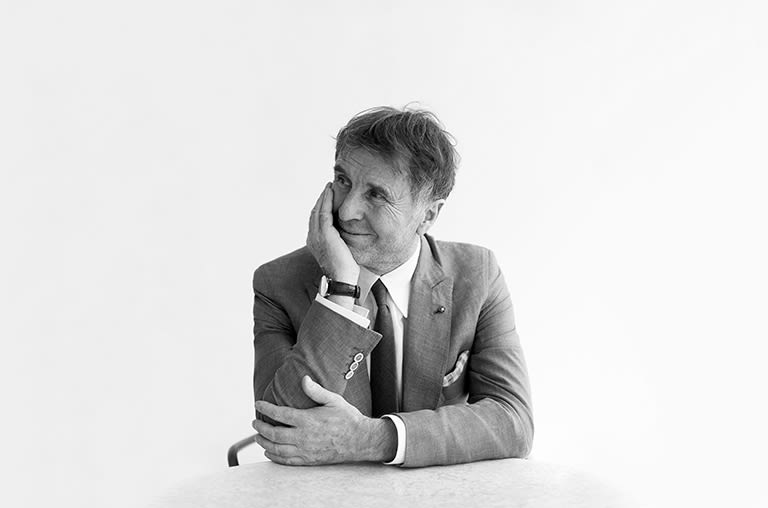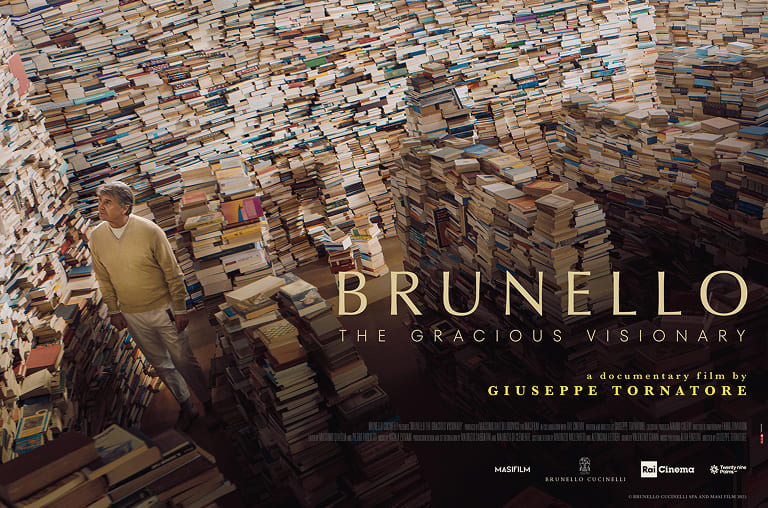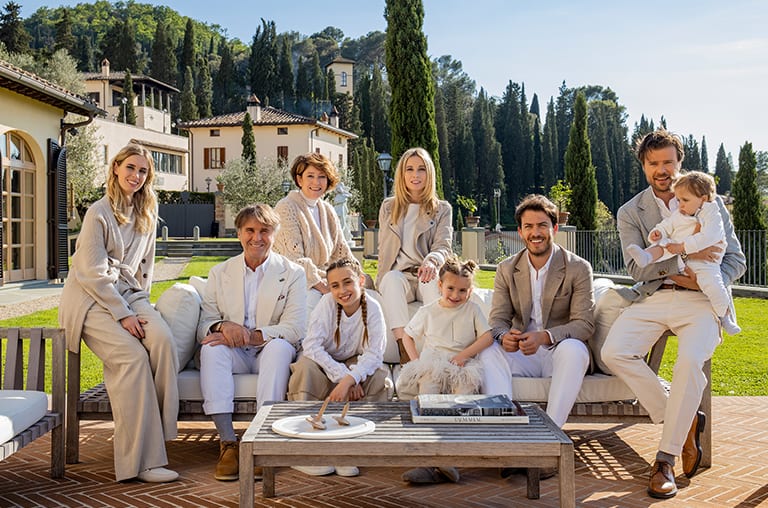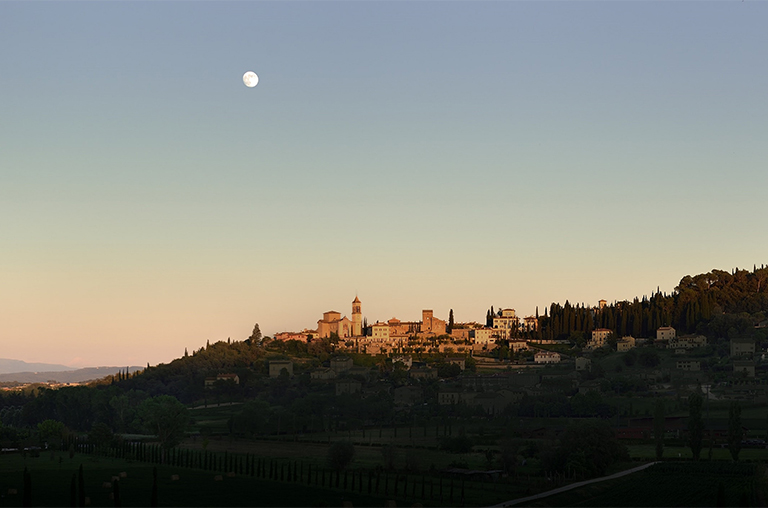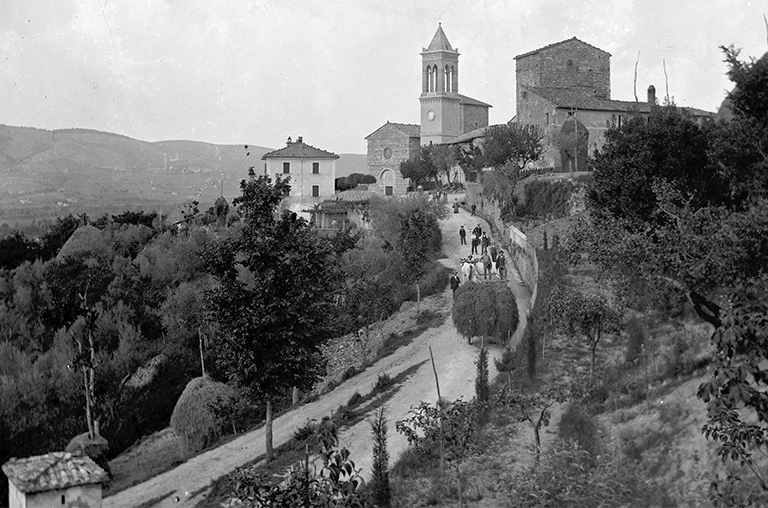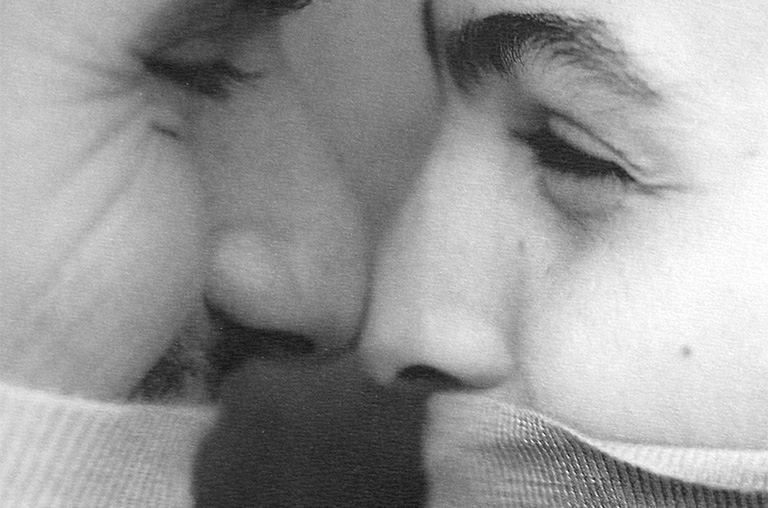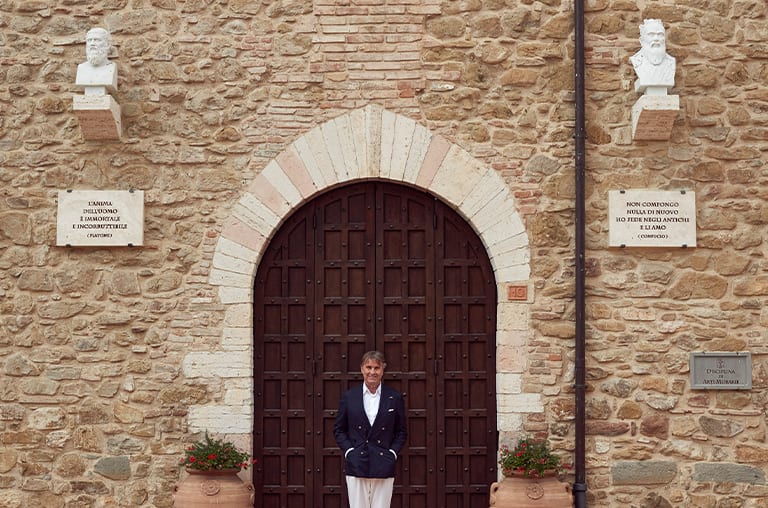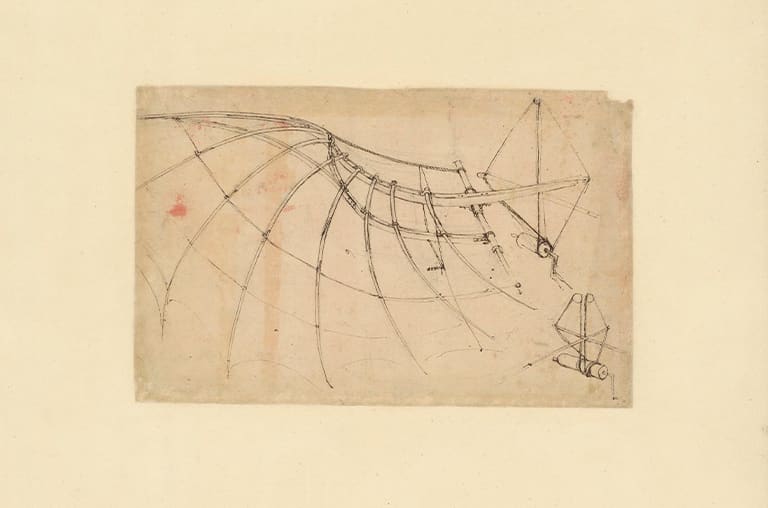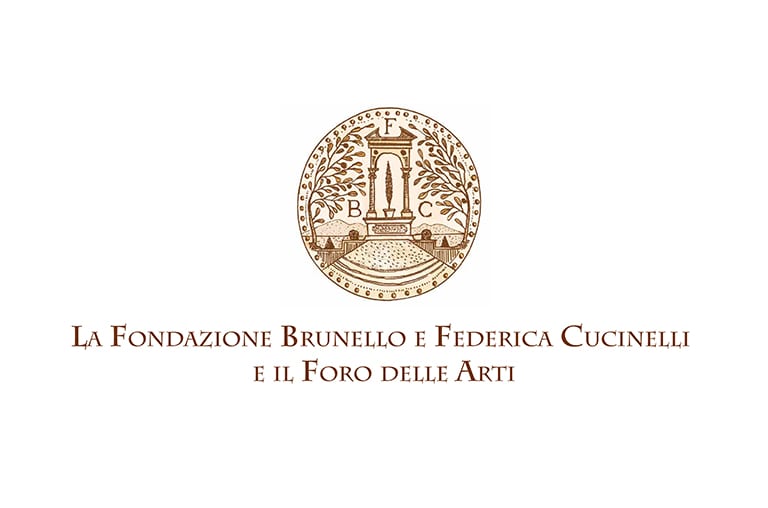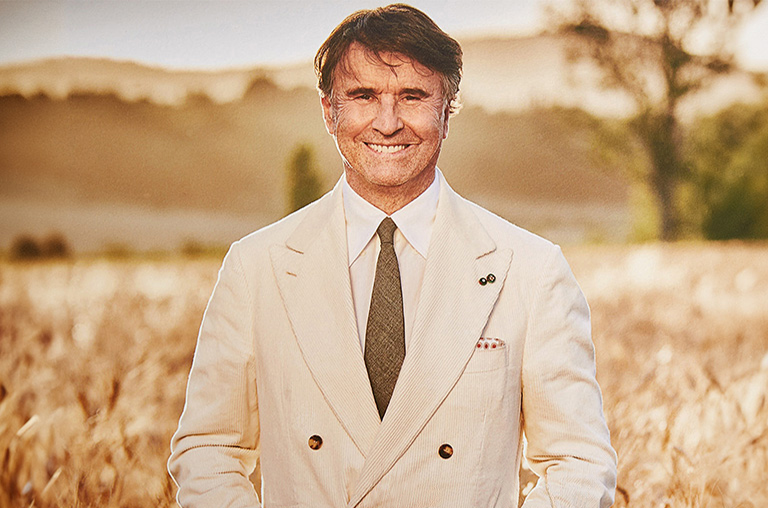label.skip.main.content
Technology, Humanism
and Artificial Intelligence

Mechanical wing operated by hand using a device - Codex Atlanticus, paper 860 recto - Leonardo da Vinci (1452-1519), Veneranda Biblioteca Ambrosiana/Mondadori Portfolio
Letter on Artificial and Human Intelligence
«In Ancient Greece, "tèchne" was a divine art that allowed people to become experts in a particular subject, in nature and in the world: it was the art of combining and transforming whatever human beings found along the way. But while art could be mastered and technique could be acquired in order to create and invent, nature, which the ancient Greeks called "physis," could only be studied in order to try to understand its eternal laws, which could not be changed by man.
I believe that technology and the continuous search for its development are some of the traits that make people “human”. Since we share our memories, we are the only living species among those we know that studies, invents, and creates. I think we can consider technology as a gift of Creation. A gift that, however, can steal the very soul that Creation has given us.
In the present day, when people discuss the relationship between humanity and technology, the key topics are often the Internet, the digital world, cell phones and the impact that the latest innovations have had and are still having on our society. But technology has gone hand in hand with the progress of humanity since very ancient times, since early humans tamed fire, invented the wheel, and used the plow for farming. Thanks to technology, Phoenicians learned to make glass by heating sand and to make Tyrian purple from the mucus of Murex snails and use it as a fabric dye. Technology was at the core of Leonardo’s art and of Renaissance architecture. The Age of Enlightenment and the technological revolution were two phenomena that fed off and influenced each other. To technology we owe the loom, the press, steam cars, electricity, the internal combustion engine, the radio, airplanes, penicillin, vaccines.

Flying machines, Leonardo da Vinci (1452-1519), belonging to Code B (2173), c.83v, stored at the Institut de France in Paris
In the 18th century, from the study of certain techniques for making the harpsichord sound more dynamic, the piano was born. And, as a testament to how important all this is for our very essence, not by chance a Golden Record was included aboard the Voyager spacecraft launched into outer space in the 1970s, containing a map of our solar system with the position of the Earth, images of human beings and a recording of Bach’s “The Well-Tempered Clavier”, “Prelude and Fugue” performed on the piano by Glenn Gould. It basically said “this is who we are”.
Today we are witnessing a new potentially great technological innovation: artificial intelligence. For the first time, humanity can create an intelligence far surpassing that of the brightest and most gifted human minds, not just in terms of calculation or analysis, but, most importantly, in terms of the ability to learn, synthesize, create and decide. Projects for the development of this intelligence are being implemented all over the world, along with analyses, debates and reflections on how to regulate and guide such projects. Hope and fear are the two emotions we often feel when we think about the potential new frontier of artificial intelligence.
Thinking back, undoubtedly humanity was able to guide the development and implementation of many technological innovations, trying to somehow find a balance in our relationship with them. After the first moments of adjustment, and even uncertainty, human beings have always tried to create a new harmony between technological innovations, their own nature and Creation.

Wing covered by a cloth and operated by a hand crank winch, Leonardo da Vinci (1452-1519), Veneranda Biblioteca Ambrosiana/Mondadori Portfolio
I like to think that it is possible to create a "right" artificial intelligence that is open and accessible to all. Artificial intelligence should not alter natural cycles and should be designed to leave positive and lasting results for the benefit of future generations. I imagine it in the service of humanity and Creation, no different; designed to make life progress, not to limit or contrast it. Artificial intelligence should favor human creativity, protecting and nourishing our intuition, which is a wonderful form of intelligence that we were gifted with. AI, as the whole world calls it, should not just be limited to mathematical intelligence, it should also encompass the emotional one, which is essential to understand the context and to favor precious human socialization.
We believe in the importance of a fair humanistic relationship between the qualities that nature gifted us with and this new intelligence that we are building through technology. We should never forget our soul. And perhaps artificial intelligence should have human sensitivity.»
Human vs Artificial:
Distinctive features of the two intelligences
Over the past few weeks, we’ve studied and reflected on the continuous developments of artificial intelligence, trying to describe those aspects and characteristics that seem to differentiate it from human intelligence and that could help us better understand it and its evolution for the benefit of humanity.

Back to the origins of our thoughts on Technology and Humanism
Timeline of early times
‘A few years after the launch of Google, Facebook, Instagram and of the first iPhone, in a moment in history when we are witnessing the first great changes in society worldwide, we held a meeting and discussed the importance of finding a renewed form of ethics to deal with human interactions via digital means.’
‘Basically all the content published online is destined to disappear, outnumbered by the myriad of new content being created every split second. However, it happens that some content stays “alive” for a long time and can be searched for, found, and reproduced in the future. We can say that any digital content leaves a trace, so it must be analyzed and cared for, keeping in mind its potentially endless life. It’s highly likely that, in the decades to come, people wishing to study and know more about a person from the past will use digital means to retrace and reconstruct such person’s works, thoughts, and life. These fast-paced new tools require an almost real-time flow of contents produced or viewed.’
‘In digitally organizing and managing our communications and our relationships with all our customers and partners, we have always given great importance to understanding their expectations, adjusting the timing, methods, channels and contents, in order to respect all the human beings involved. And we seem to be witnessing a growing awareness of the need for a non-technical guide in digital technology planning. We find it a fascinating idea to involve philosophers, anthropologists, historians and experts in human evolution and behavior in guiding the digital transformation of our society.’
‘The Internet is a symbol, the catalyst of an era based on revolutionary freedom in the field of expression, creation and knowledge. These are the human ideals we are striving for. We have to observe our new horizons with increasing sensitivity in order to inspire a future of growth, serenity and sharing.‘
Speech “Humanistic Artisans of the Web”, published concurrently with the launch of the institutional campaign.
‘Privacy safeguards our intimate sphere; we need the right amount of privacy in order to harmonize our public and private spheres. Both our public and private lives are essential, but they benefit our well-being only when there is an appropriate balance between the two.’
Speech on “Human Privacy” held at the meeting “Consulentia” in Rome
Presentation, during the opening speech at Dreamforce, of the video on Brunello Cucinelli as a pioneer of humanistic capitalism (“compassionate capitalism”).
Speech on “The young Leonardos of the Third Millennium”.

The guests of the Symposium on soul and economics with Brunello Cucinelli at the recreation center in Solomeo

Brunello Cucinelli with the guests of the Symposium on soul and economics, Solomeo, 2019. Illustration by Sunflowerman
Charter of the “First Symposium on Soul and Economics in Solomeo”
‘In May 2019, we welcomed here in Solomeo my friends from the Silicon Valley, California, a place that is far away in distance but so close to my soul.
In the three days we spent together with Ramin Arani, Ruzwana Bashir, Marc Benioff (who was present with an exquisite open letter to the entire group), Paolo Bergamo, Jeff Bezos, Dick Costolo, Lee Fixel, Reid Hoffman, Drew Houston, Lynn Jurich, Sarah Leary, Alec Ross, Ned Segal, Rob Speyer, Nirav Tolia, Trevor Traina, we discussed under the moon, next to the Monument to Human Dignity, or inside the enchanting setting of the Theater, in the presence of the great thinkers of the past, sculpted in classic marble busts; we dined in the Winery attached to the vineyard, a tribute to the Earth, Mother of all things. At the end of these three days, we imagined a possible synthesis of the topics that we had discussed, a kind of memory trail, a summary of our thoughts, something that we would call: Charter of the Solomeo Symposium. We like to imagine this Charter as the foundation for the principle of Harmony between humanism and technology and as a potential source of inspiration for human behavior and values, and we deem significant its creation by people who are the young Leonardos of the Third Millennium.
Humanity is connected with history and, as it clearly emerged from our friendly discussions at the Symposium, none of the participants has forgotten their origins, the difficulties encountered in fulfilling their dreams, the human values that are behind any action. This awareness makes us responsible and hopeful that a harmonious future can grow from the seeds of the past and the present; it makes us aware of the noble idea, inspired by the heavens, by which we are all equal, free and worthy of fulfilling our dreams. Great hope was placed on the idea that, based on the principles shared by all humans, the world of tomorrow will be built on human dignity and brotherhood. Every voice deserves to be heard and taken into due account. We must have the courage to change, to actively pursue new things, because if we don’t accept change we will miss the good part of change itself.
There are many things we like, but not those that offend human dignity, nor those that create gender gaps. During the symposium, we talked freely, like old friends. We noted with great pleasure how we all value greatly our teenage years, a value that is both emotional and creative. How sincerely beautiful our past youth is! How many priceless lessons we learned, often from our grandparents, and how much emotion and common sense came from our parents! They were teachings of truth and love, two big themes that lead a person in the path of righteousness, the right path for any good person. And such teachings are still alive and all-pervading for us.
Today we are busy with activities that at times seem to steal the soul of people a little bit, but a simple scent, gesture, color, sentence are enough to bring back a specific day, a specific hug, a specific smile of so many years before right in front of us, real and present, as if all that time had never gone by. We agreed upon the ‘active’ importance of our past experiences, which almost always came from a combination of creativity and a desire to improve the lives of all, with integrity, with truth, with respect.
How incredibly useful was family in this! The key role model of society, where direct contact, nourished by love just as much as by the feeling of mutual assistance, was critical for the soul. In those times we didn’t ask ourselves where our soul was, because it was alive in each one of our daily actions; but today we do ask where it is, and we, friends, humanistic entrepreneurs and technology experts alike, questioned ourselves about this issue, because today it is easy to feel that our soul isn’t so close anymore. Precisely for this reason we would like to see the notion of family, a good and benevolent family, take on once again the role of influencing people in a positive way like it did in the past. It will take a new form, which we will need to look for, this is normal, but with the same ancient essence and meaning, those which are able to carve a positive personality that is creative, honest, harmonious, sincere and true.
We discussed the balance between profit and giving back. We made a vow to never separate profit from giving back: the latter is not a restitution or even a credit, but the generation of spirit, a flower that blooms from the dignity of any profit. We would like our profits to be ‘amiable’, in harmony with the true values of humankind. And if they are just, maybe they will be reliable, and long-lasting. It’s nice to balance profit with giving back, and this originates from fair profit, which is a profit that follows the rhythms of nature, with regularity, growing harmoniously and supported by renewed creativity. Looking back to history, we can observe that science does not govern everything, since much is governed by the heart. The heart really is an extraordinary thing, it appears miraculous, because it is able to actualize dreams that reason deems futile. Among those that contemporary people have more often, are the dreams that harmoniously connect things that are incredibly far and different from one another. How beautiful it is to think that past, present and future could all be connected together.
If we are able to observe, if we are able to listen, this connection can be found in the eyes of the people we meet, in the words that tell of the nostalgia of the past and the hope for the future. How great it would be if the nostalgia of the past became creative and the hope for the future became tangible! Everyone, truly, each and every one of us can do something in this respect, but during the Solomeo Symposium, we looked at one another in the eyes, and we understood that the participating guests had to take a little more responsibility than most. Humanity can choose the perpetual values among the ancient ones, and once the choice is made, use the most advanced products of human ingenuity to develop them and make them universal, as our young Leonardos told us while talking about the latest technological developments, and as Reid Hoffman mentioned during these days, while recounting the fascinating new frontier of Artificial Intelligence.
This was a topic that was discussed at length: to think of a Creation where past and future live together in the present is not a futile dream, but a dream that is within reach of our normal human nature. This is why there are many arrows in our quiver, starting from those grand and eternal symbols of human values that are monuments, which are not just there to show the beauty their builders have given them, but are actually a mirror of humanity. Each era of humankind has become eternal thanks to the monuments that have spoken of its greatness with a visible language that can be understood by everyone. This is an important admonishment to push us to do the same, to build eternal monuments in the present time in order to pass on the greatness of this era so incredibly rich of contemporary geniuses to future generations! We should never forget to put in place a three-month plan, a three-year plan, a thirty-year plan but also a two-thousand year plan.
How will it be possible to thank these young women and young men, the young Leonardos of the Third Millennium, for having travelled, as very welcome guests, to Solomeo, Hamlet of Cashmere and Harmony, seat and source of each of my dreams, place where we try to safeguard the highest ideal of an economy nourished by humanity? This is a great honor. Together, during these days of friendship and reflection, we have confirmed respect, safeguarding, and sharing of all that in any era has been considered the most precious treasure of any community, the highest testimony of the original nobility of humankind, the supreme indicator of the feeling of freedom and moral domain: the soul. And the young Leonardos, who deal with economic issues every day, approached the highest ideals with the elegance of a very noble dialogue. The ideas for the future are ideas of a tomorrow made joyous by technology becoming the ‘handmaiden’ of humanity. The soul that fosters economy, which, before being an idea, was a dream and a gift of life.
If ever the soul was moved by ideals, during these days each of us felt it deep in our hearts.
If ever humanism was born again in the heart of the people of our times, during these days we have experienced this blissful event.
Our thoughts turn to the future of our children and those who will follow our lives, with a breath of fascinating fervor. This is why we believe that it is right to give free reign to our dreams, by planning for the coming centuries and millennia.
I am deeply grateful to all of those who wished to honor Solomeo with their presence during these days that seemed to us as a sort of: “Symposium on Soul and Economics” and whom we will always remember with gratitude and fondness.”




